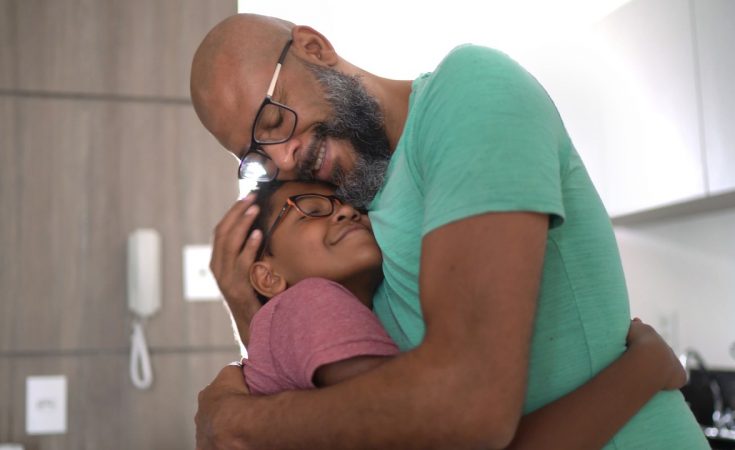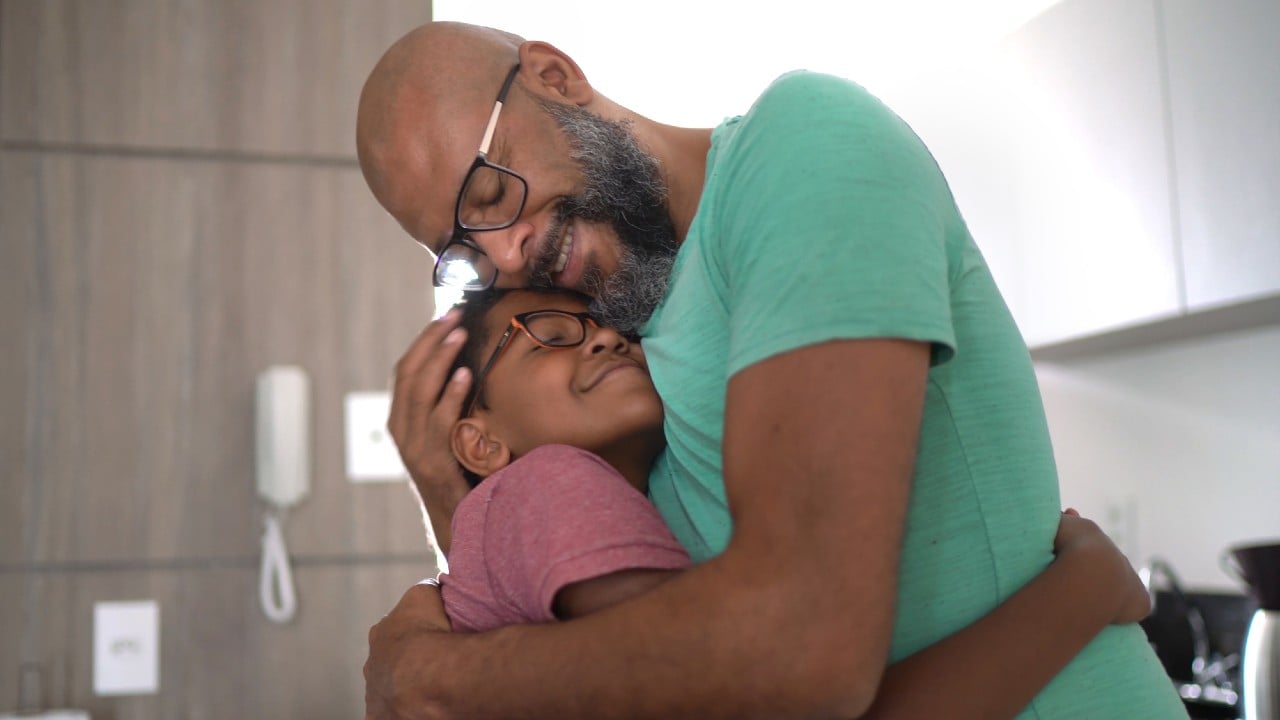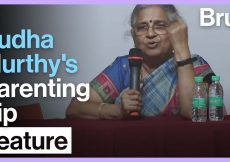What if letting your child be who they are was so controversial that it regularly sparked outrage on social media? What if there were articles, videos and documentaries about kids just like yours that argued against their access to public washrooms, sports or proper medical care? What if these were forwarded to you by concerned loved ones, or used as the reason they refuse to support your child?
Welcome to my life—and the lives of many parents of transgender kids.
It seems we can’t go more than a few days without a new attack on trans children. I don’t use the word “attack” lightly, either. The barrage of media articles and online comments opposing the rights and identities of trans, non-binary and gender non-conforming young people may not be physical violence, but it’s no less harmful—and it needs to stop.
For years, I’ve watched society waffle between support for trans kids and condemnation of them. Trans adults are affected as well, of course, but children are especially vulnerable to anti-trans sentiment and legislation changes. Without affirming parents, it’s nearly impossible for them to live authentically or happily. Without protective laws, they face increased discrimination in society.
It’s time for that waffling to end. It’s time to leave trans kids and their families alone.
I’m a parent to one of those kids. They’re 19 years old now, but they came out to our family in 2014, at the age of 11. In that time, I’ve watched them evolve from a depressed and insecure tween who would barely go to school into a more confident young adult who has some great friendships and recently graduated college with a 92 percent average. The change has been remarkable, and as they’ve told us many times, much of it is thanks to receiving the unconditional support they needed from day one. Watching them grow in a loving environment has been very rewarding. Isn’t that what all parents want for our kids?
The year after our child began to live authentically, my partner told us she was a trans woman. And just last year, after a lot of self-reflection, I came out as non-binary. You could say our family of six knows a thing or two (or three) about the trans experience. Trans people of all ages exist everywhere, even on the quiet suburban street my own family calls home.
Progress is rarely a straight line
When the idea of trans children was first introduced more widely to society, I could understand the worries many people had. I even shared some of them. Anything different will take some time to absorb. While trans identities are not new—we see examples of trans and queer people throughout history—visibility has increased dramatically in the last decade. For a while, at least, it seemed as though we were getting there: Trans people were being featured positively in the media, schools boards were working towards inclusion, and trans-affirming healthcare was becoming more widely recognized and available.
But progress, as we know, is rarely a straight line. With more acceptance came louder opposition. With more progress came new fears. Today, more weight is being given to voices sharing misinformation, conspiracy theories and even outright bigotry. In historically progressive countries, such as the US and the UK, laws that specifically target trans rights are being introduced and often implemented at an alarming rate—and children are paying the price more than anyone.
What the science says
This trend of attacking trans kids is not due to a lack of good science; there’s plenty of that. Data from research over the last few years is overwhelmingly clear that trans people of all ages are who they say they are—they aren’t confused, they aren’t mentally ill, they aren’t following a societal trend—and they know better than anyone what they need.
Moreover, studies prove that young people who are supported in their transition—whatever that may look like for them—have better mental health outcomes. One such study demonstrated that teens given access to hormone replacement therapy saw a 40 percent reduction in depression and suicidality. Another shows how, when trans youth receive strong support from their parents, their risk of suicide drops significantly. Still another demonstrates that when a transgender youth’s chosen name is used both inside and outside the home, their risk of attempted suicide decreases by 65 percent, and they experience a 71 percent reduction in symptoms of severe depression.
In other words: When kids get what they need, they thrive. When they don’t, they suffer. This is just the transgender version of a much larger truth. So, if the research is clear that we need to affirm young trans people, then why are we still debating their existence and rights?
It’s not due to a lack of information, but an abundance of transphobia.
We’re not buying your “concerns”
Unfortunately, no matter how much evidence is out there in support of a marginalized group, there will still be people who hold bigoted views. Obvious bigotry is easy to spot. But there is a more insidious type that manifests in the form of “concerns.”
It’s true that people can have genuine concern, especially parents who’ve recently found out they have a trans child. Many of us had worries in the beginning. But when strong, compelling evidence is provided to alleviate that concern, it falls by the wayside. Education eases fear.
However, regularly instilling “concerns” about a marginalized group into society’s larger conversation about it can cast just enough doubt to cause backlash. Previous generations saw this when white mothers in the US raised “concerns” over Black children being allowed into previously all-white schools. Those same “concerns” were brought up about interracial couples, or people of colour moving into traditionally white neighbourhoods. We saw it again when anti-LGBTQ groups raised “concerns” over gays and lesbians getting married or raising children. We continue to witness fatphobia masquerading as health concerns.
What we’re seeing today with trans people is just prejudice in a shiny new package. How do we know this? There are many aspects to being trans, but society continuously sounds the alarm over one element more than any other: medical transition in trans kids and the risk of regret.
“What if they change their mind?!”
Even with long wait lists, careful screening at gender identity clinics and studies showing happy young trans adults who were affirmed as teenagers, a “reasonable concern” expressed by some anti-LGBTQ groups is that teens are rushing into transition and will realize they’ve made a mistake only after it’s too late. Despite a growing body of evidence that transgender youth who receive gender-affirming healthcare rarely change course, a widely shared “reasonable concern” is that being trans is just a phase for most young people. An early study showing roughly 80 percent of children who claimed to be trans “desisted”—or stopped identifying that way—is repeatedly cited as evidence of how trans kids “usually change their minds,” despite the fact that the research received serious, legitimate criticism for its flawed methods.
A recent theory called Rapid Onset Gender Dysphoria (ROGD) made quite a splash, claiming children were being influenced by media and peers into believing they were trans. This, too, has been widely discredited as a faulty study, as it focused primarily on the views of parents who were plucked from an online forum filled with anti-trans sentiment. Besides, parents often don’t see any signs that their child is trans or non-binary beforehand, and that child’s shift in gender identity is often only “rapid” from the outside.
Shockingly, there is even a campaign run by an anti-trans organization in the UK that purports homophobic parents are pushing their gay children into transition so they can have a straight child instead. There is no evidence to back this up, of course, because it’s not true (also, a large portion of trans youth don’t identify as straight). But it’s been working well in some circles, as it cleverly sends a message that if you support lesbian or gay teens, you can’t support transition.
A lot of bigotry is designed to sound reasonable, as instilling fear is far more effective than screaming on a soapbox. We can easily be manipulated with fear because it’s a powerful emotion. We need to start wising up to this old trick.
If you truly care, learn from the source
Our job as parents is to love our children for who they are—not who we might expect them to be. We meet our kids where they’re at, and we help them become the best version of themselves. In order to do this, we sometimes have to push beyond a fear of the unknown and grow as people.
Thankfully, we now have the internet. If we use it carefully, it’s a cornucopia of education. When it comes to trans people, it makes sense to learn from the source. There are plenty of trans youth with YouTube channels and TikTok accounts to learn from, as well as advocates of all ages on every social media platform. Articles, blogs, books and documentaries are coming out all the time with trans people and their loved ones sharing their own experiences. These are far better resources than the views of those with no personal experience but plenty of opinions.
It’s time to stop listening to misinformation and hate. It’s time to retire the worn-out and continuously disproven arguments against young trans people. How many times do we need to go in circles before we give these children a break and let this fade into an unfortunate history lesson on recycled bigotry?
It’s exhausting to constantly fight waves of misinformation, dissecting and correcting arguments aimed at a highly vulnerable population of children–especially when one of those children is your own. Trans kids and their families would of course appreciate your acceptance and support. But at the very least, drop the “concern” and skepticism, and let them live in peace.



































